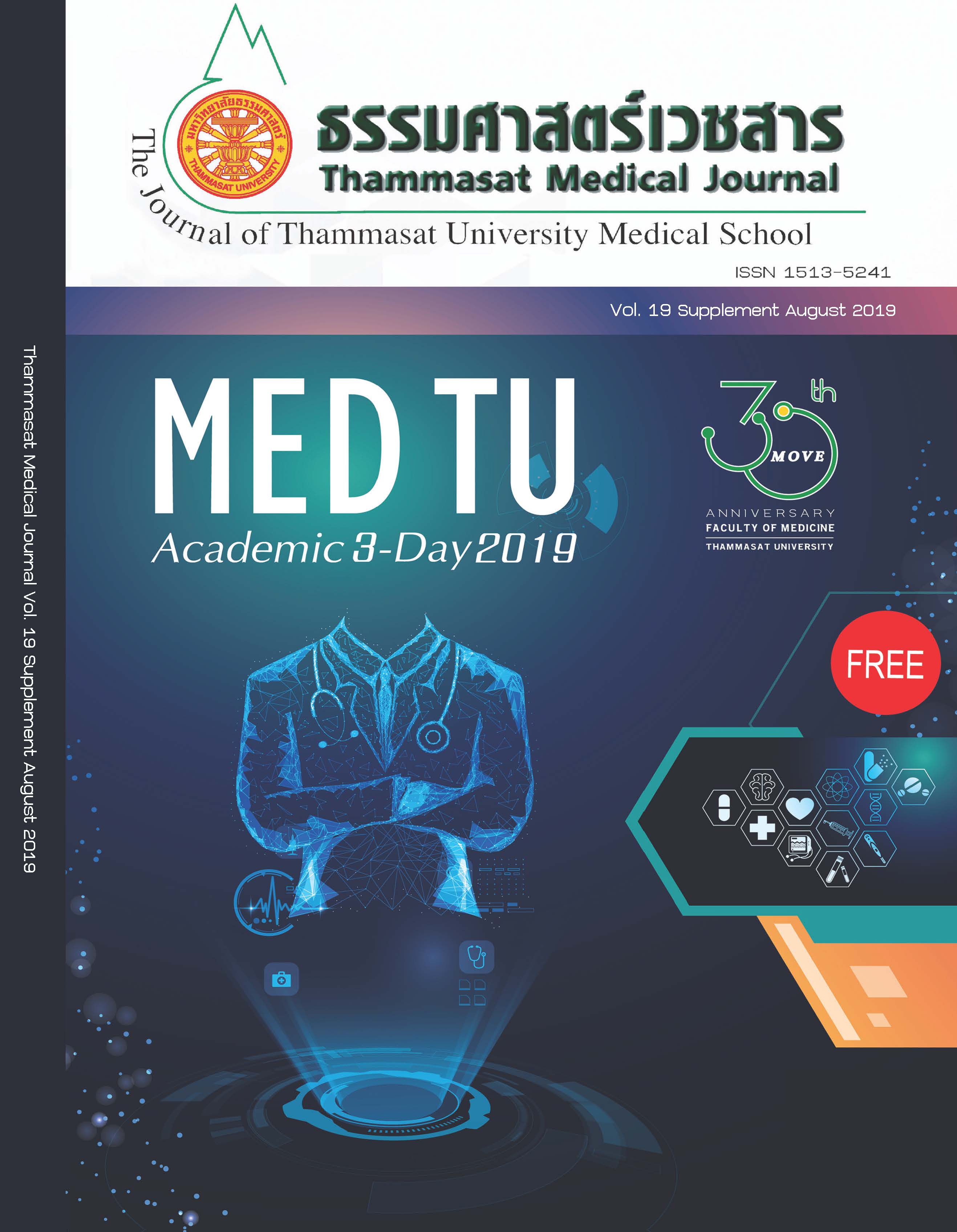Factors that influence the achievements of preclinical medical students at Thammasat University
Keywords:
academic achievement, Medical students, instruction quality, cognitive and affective behaviorsAbstract
Introduction: This study was to identify factors and develop a predictive equation influencing high and low academic achievements of preclinical medical students.
Methods: We conducted descriptive research, and the sample population was 131 second and third year students of the Faculty of Medicine, Thammasat University, Rangsit Campus. There were
2 groups: high-achievers (GPA > 3.50) and low-achievers (GPA < 2.99). Data were analyzed by using percentages, stepwise multiple regressions (SPSS for Window V 11.5).
Results: For the high grades group analysis, we had three aspects: the quality of instruction (X3 b = 0.297, p < 0.00), cognitive entry behaviors/knowledge (X1 b = 0.147, p < 0.00) and affective entry
characteristics/attitude (X2 b = 0.115, p < 0.00). The variables were able to predict academic achievement at 62.70%. Y = (a) 1.411 + 0.297(X3) + 0.147(X1) + 0.115(X2). The low grades group used the same variables: the quality of instruction (X3 b = 0.148, p < 0.00), cognitive entry behaviors/knowledge (X1 b = 0.052, p < 0.00) and affective entry characteristics/attitude (X2 b = -0.116, p < 0.00). These were able to predict academic achievement at 40.00% Y = (a) 1.788 + 0.148(X3) + 0.052(X1)-0.116(X2)
Conclusion: Both groups’ students agree that teaching quality is most important to attain academic achievement. Instructors should be aware of teaching and the learning process: knowledge, thought, understanding, and problem solving in various situations. Students also need to cultivate a good attitude towards the institution and teaching system.



